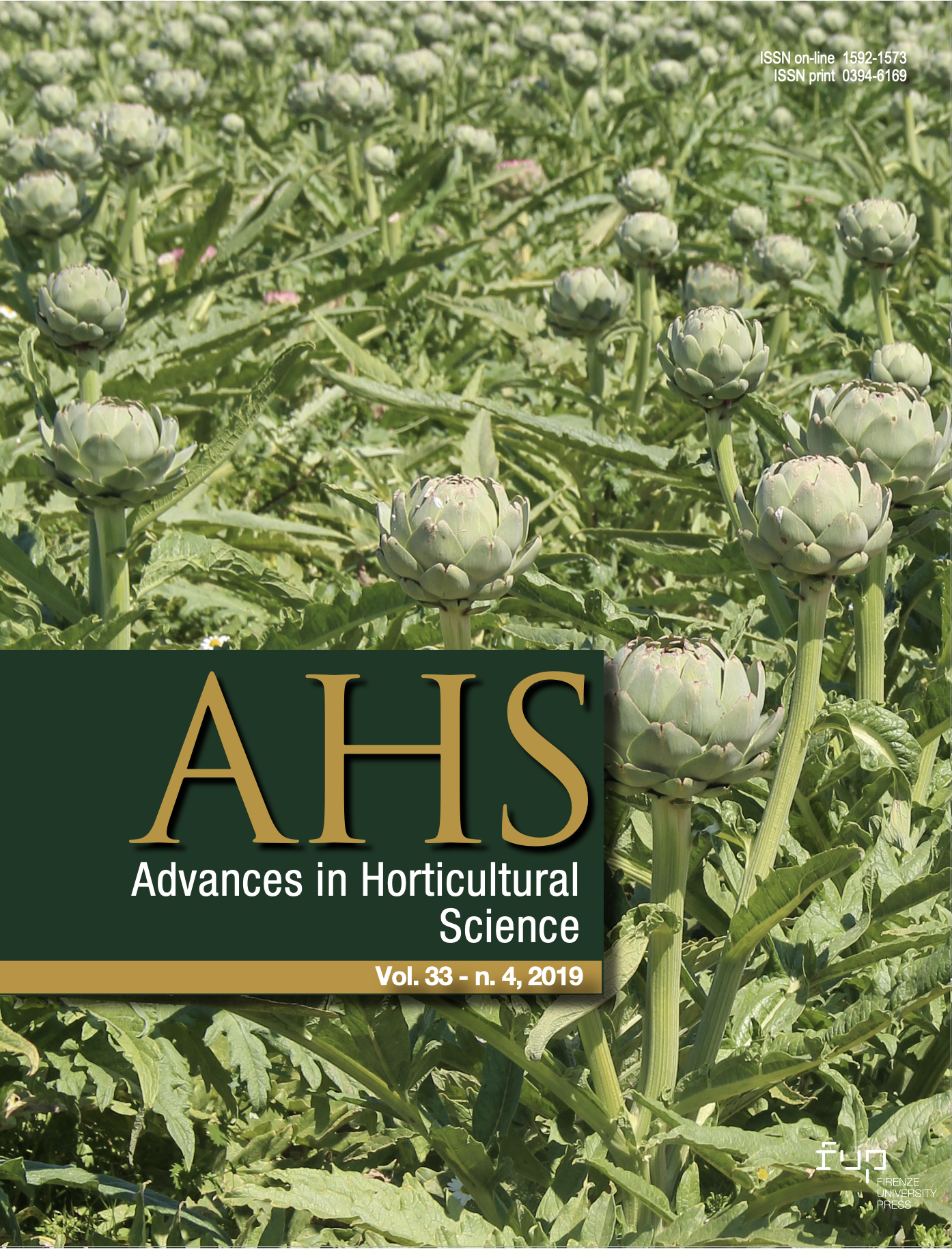Effects of foliar application of glycine and glutamine amino acids on growth and quality of sweet basil
Published 2020-02-20
Keywords
- ascorbic acid,
- biofortification,
- biostimulation,
- fertilization,
- foliar feeding
- nutrient uptake,
- proline ...More
How to Cite
Abstract
Amino acids have diverse roles in plant metabolism, and recently amino acid based fertilizers have been used largely in crop production systems. Despite most of these new fertilizers are formulated for foliar application; however, morphophysiological responses of crops to amino acids application have not yet been well documented. In the present study, foliar application of glycine or glutamine in different concentrations of 0 (distilled water), 250, 500, 1000 mg·L-1, as well as a treatment of 250 mg·L-1 glycine + 250 mg·L-1 glutamine were evaluated on growth of sweet basil (Ocimum basilicum L.) plants. The results showed that foliar application of glycine or glutamine at 1000 mg·L-1 showed no improvement in comparison with control for all traits except for leaf L-ascorbic acid concentration that showed the highest value under these amino acids treatments. However, foliar application of these amino acids at 250 and particularly 500 mg·L-1 showed promising effect on sweet basil growth. Plant shoot fresh and dry weight, leaf area, leaf SPAD value, and leaf chlorophyll content were improved by foliar application of 500 mg·L-1 glycine or glutamine in comparison with control plants. Foliar application of amino acids increased leaf nitrogen (glutamine 250 and 500 mg·L-1), potassium (glycine 250 mg·L-1), magnesium (glutamine 250 or 500 mg·L-1, glycine 250 mg·L-1, glycine + glutamine; 250 + 250 mg·L-1), iron (glycine and glutamine at 500 mg·L-1 and glutamine at 250 mg·L-1), and zinc (glycine and glutamine at 250 or 500 mg·L-1), whereas the increase in leaf nutrients caused by other treatments was not significantly different from control plants. Leaf calcium concentration was not changed by amino acid treatments. The results indicate that foliar application of moderate to low concentrations of glutamine or glycine can improve sweet basil growth.






